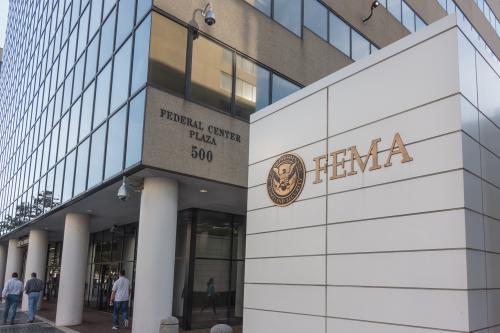The UN’s Intergovernmental Panel on Climate Change (IPCC) released its Fifth Assessment Synthesis Report three days ago and essentially conveys the same message that the world’s leading scientists have been saying for decades, but in a much more definitive and stark language.
The report reiterates that global warming is “unequivocal,” humanity’s role in causing it is “clear,” continued greenhouse gas emissions will cause “severe, pervasive, and irreversible impacts” for people and ecosystems, and transition to a low-carbon future will require several hundred billion dollars per year before 2030.
The big question confronting us is what happens now. A comprehensive report on the science of climate change is before us conveying the clearest message yet on how human activities are changing the climate. Where we go from here now rests largely on politics.
In the United States, however, national politics has not been friendly to the climate change debate and partisan gridlock and dysfunction have routinely affected any serious response to climate change. With national action remaining weak and tepid, it has fallen to sub-national actors to embrace and enact meaningful climate change policies.
In an earlier blog Mark Muro and I highlighted the various ways that U.S. states and localities have been on the forefront of climate change action. These sub-national actors have embraced policies and measures across multiple scales supporting technology development, diffusion and transfer by establishing accelerators and tech incubators, and even climate finance including Connecticut’s and New York’s “green banks.” This is in addition to policies that directly promote adaptation and mitigation such as performance standards, state and local climate plans, and sub-national cap and trade program such as the nine-state Regional Greenhouse Gas Initiative and California’s year old cap-and-trade program. Supportive, bottom-up policies by states and regions have thus made it possible for climate and clean energy-related technologies, especially residential and commercial solar PV, to make inroads into mainstream America.
Sub-national efforts like these are helping to lay the blueprint for large-scale climate action. That being said, the planet’s health cannot rely solely on actions taken by states and local governments. Any comprehensive effort to address climate change requires that the federal government gets in the game as well, which seems like wishful thinking at the present moment.
The IPCC report delivers a critical message at a critical moment in U.S. politics. This week’s election outcome will have further ramifications for the nation’s climate and clean energy policies. If the Republican Party gains majority in both chambers of Congress, President Obama’s clean power plan would be under threat with serious implications for international climate negotiations.
Now more than ever U.S. sub-national actors will need to double down and accelerate the adoption of substantive climate change policies. At a time of national drift, their actions hold out the best hope of addressing the impacts of climate change and accelerating the move towards a low-carbon economy. Thankfully the vision and ambition for change is there.



Commentary
Sub-National Climate Change Actions Prevail Over National Politics
November 5, 2014